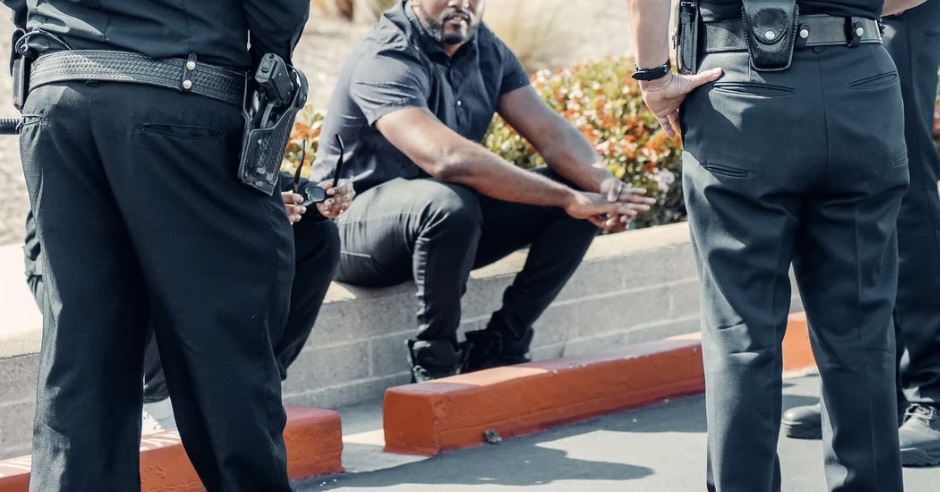Last month, about an hour north of where I grew up in suburban Georgia, 19-year-old Ximena Arias-Cristobal was detained by Immigration and Customs Enforcement (ICE) after a mistaken traffic stop. Though granted bond on May 21, Ximena Arias-Cristobal is still facing deportation despite residing in Georgia since she was four years old.
While supporters nationwide have rallied around Ximena Arias-Cristobal, raising nearly $100,000 for her legal defense, this case serves as a solemn reminder that Latinos, especially in the South, are being surveilled. As someone who grew up Latina in a predominantly white suburb of Georgia, I also know that this surveillance isn’t limited to that by the state but ingrained into the fabric of our everyday lives.
At the age of four, the same age as Ximena Arias-Cristobal when she arrived in the United States, I stopped speaking or wanting to hear Spanish, my parents’ native language. None of my classmates came from a Spanish-speaking family, and, already hyper aware of these differences, I told my mother while playing on a playground with white kids that “this isn’t Mexico,” and that she should speak only English to me in public. I don’t remember where I got this idea from, but my mother never spoke Spanish to me in public again.
Once I got to grade school, I realized I needed to change my name, Ana Carolina, which was too long, too Latina, and too difficult for my white teachers and classmates to pronounce. But that didn’t stop the teasing from the kids in my class, who called me “ugly” and “stupid,” who pointed out all the things about me that made me different despite my desperate attempts to dress, act, and look the same.
But it wasn’t just childhood teasing that made me feel small.
When I was 11 years old, my white public school teacher accused me, a student with no prior behavioral issues, of inappropriate sexual behavior. I was tearfully sent to the principal’s office and narrowly evaded out-of-school suspension, though I would be accused of the same behavior two more times. At only 11 years old, and from a conservative Catholic home, I didn’t even understand what I was being accused of or why, just that my classmates no longer wanted to be around me and that teachers had their eyes on me. These incidents, which I can now identify as racial trauma, were the beginning of a long battle of my own self-destructive behaviors; when you tell a child so many times that they are bad, they may start to believe it.
As part of the Latino community in the South, racial trauma can feel like an inevitable reality. Whether it occurs on the macro scale, like facing criminalization from the police or ICE, in everyday interactions, like through microaggressions, or even through witnessing the widespread treatment of Latinos on the news, the impact can be life-altering. Racial trauma, whether directly or vicariously experienced, can be associated with mental health conditions such as post-traumatic stress disorder (PTSD), depression, anxiety, self-blame, and low self-esteem. The pressure of facing these after-effects of racial trauma, while trying to self-correct to avoid being perceived negatively again, is a form of surveillance on its own.
Latino immigrants, who in reality commit crimes at lower rates than the U.S.-born population, deserve to live a life free of surveillance and racial trauma. We are college students, construction workers, restaurant cooks, scientists, engineers, family, and friends. We pay taxes and work hard. We, like anyone else, want the best lives possible for ourselves and our families.
A judge recently granted Ximena Arias-Cristobal bond after three weeks in detention. Arias-Cristobal will still face deportation proceedings, which the Department of Homeland Security has hinted may result in her deportation to Mexico. All the while, thousands of other Georgia college students are enjoying their summer break, maybe even vacationing in the same countries that our government so recklessly criminalizes.
If you are part of the Latino community living in the South, know that you do not deserve your pain. If you are a white ally, know that there are many stories we don’t tell you. If you’re applauding what’s happening, know that we wouldn’t do this to you if the roles were reversed.
Annie Romano is a Public Voices Fellow of The OpEd Project, The National Latina Institute for Reproductive Justice, and the Every Page Foundation.
Do you have an idea for an Opinion-Editorial piece? We want to hear from you! Please send your ideas to Info@LatinoNewsNetwork.com for consideration.
